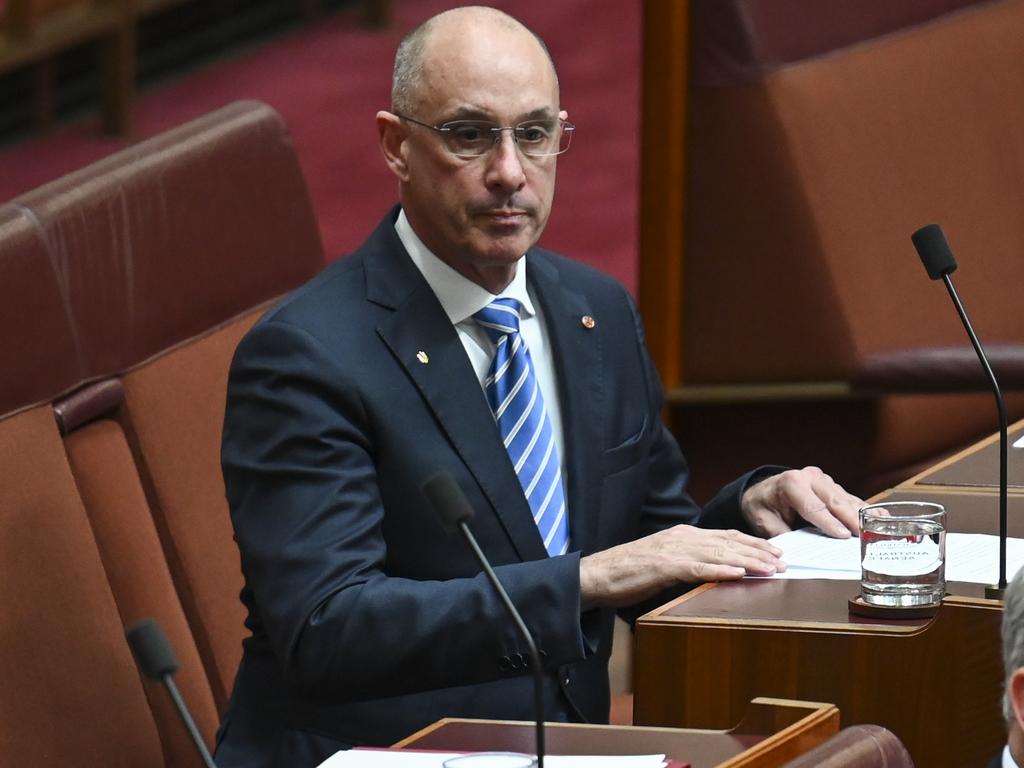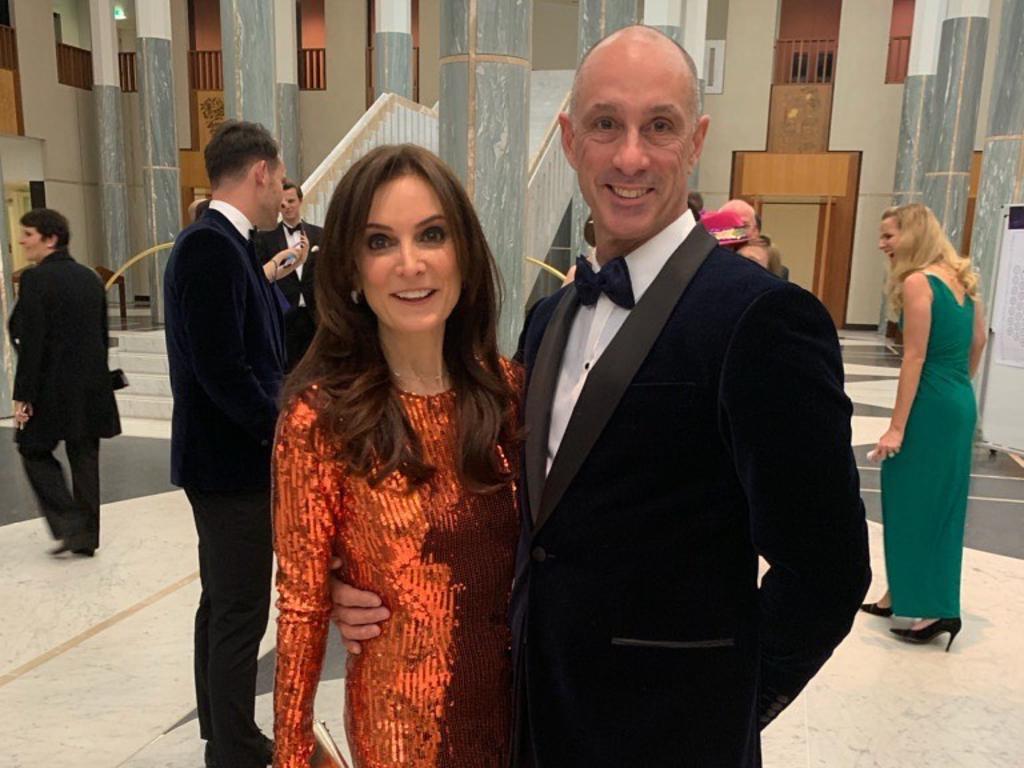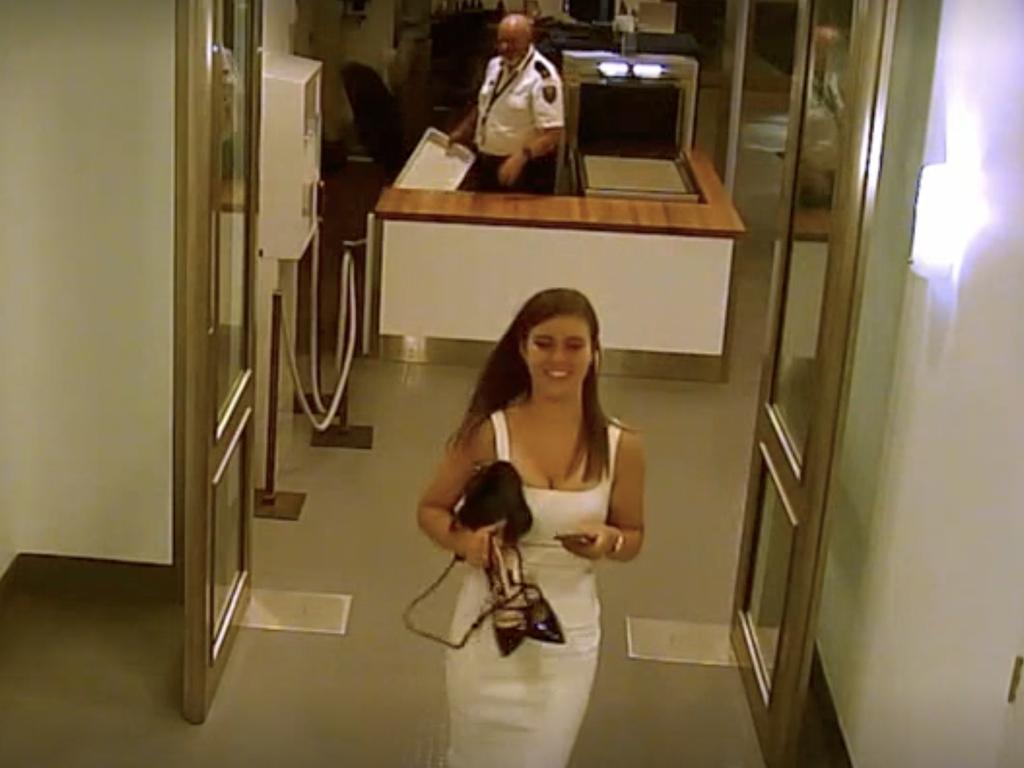Fight for the moral high ground as Brittany Higgins, Lidia Thorpe, Amanda Stoker sexual abuse claims reverberate around Canberra
The cascading events of the week are filled with self-interested politics, false virtue and genuine alarm. There was always a political motive for Labor in pursuing the Brittany Higgins allegation.
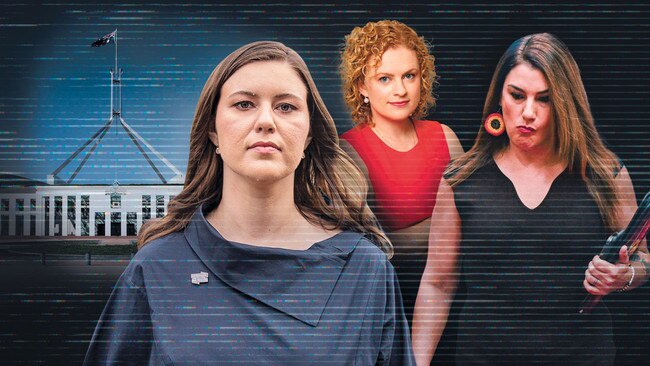
In political terms the Liberal Party has been stabbed in the back by history. With the Albanese government under serious pressure over its weaponising of the 2021 Brittany Higgins rape allegation, Peter Dutton was engulfed by another nightmare – fresh sexual harassment claims against his own side.
It is astonishing and shocking. When will the Liberals break free from the repeated cycle of sexual abuse allegations? Dutton has moved decisively to expel Liberal senator David Van from the partyroom. This followed fresh allegations made to him by former female Liberal senator Amanda Stoker, whom Dutton deeply respects, concerning Van’s behaviour at a 2020 drinks event.
Stoker felt obliged to inform Dutton after an earlier accusation made against Van by independent senator Lidia Thorpe, who subsequently claimed being “propositioned and inappropriately touched” in parts of the building without naming Van on that occasion. Thorpe declared that Parliament House “is not a safe place”.
The cascading events of the week around sexual harassment are filled with self-interested politics, false virtue and genuine alarm. Amid the fog of disputes is the reality. Politicisation of sexual assault claims and the response to them is a proven political tactic that works. The Labor Party demonstrated that in 2021. The Coalition was justified this week in re-opening the Higgins issue given fresh and damning revelations.
But the Liberals, as the Van incident shows, remain vulnerable on cultural issues around women.
Much of the media is untrustworthy on the Higgins issue where it became a partisan player and cannot come to grips with its own partisan role. It is, of course, utterly fatuous for senior ALP figures to talk about the damage to the parliament when Labor spent the second half of the previous term weaponising the Higgins issue across the parliament.
For Dutton, trying to repair the Liberal brand with female voters, this week was another blow. Labor, having used Liberal misbehaviour towards women in the last parliament, now has fresh evidence to revive the charge in the current parliament.
Van apologised to Stoker for his 2020 behaviour and denies Thorpe’s claims. His future will be finalised by an inquiry Dutton has sought from the Parliamentary Workplace Support Service but the evidence against him looks grim and comes from several sources. Dutton said on Friday he should leave the parliament.
The line that the Liberals cannot go anywhere near the Higgins issue because it will backfire against them looks persuasive this weekend – but it is false.
The Higgins issue has a long way to run. Sentiment is turning as more facts are revealed. The key to its complexity is that it constitutes a fusion of two elements – the right of a woman making a rape allegation to be respected and protected, and the recruitment of the issue in the political cause of destroying the Morrison government.
This goes to the heart of the 2022 election. Central to Labor’s victory was its campaign against the character of Scott Morrison and his ministers, the critical exhibit being that the government failed to support Higgins and indeed sought to intimidate and silence her. This was separate from any view of the rape allegation.
Morrison never recovered. It was a moral accusation of devastating import made by a young former Liberal staff member of an alleged rape by another Liberal staff member.
It created an electric current to Australian women in the context of a #MeToo movement energised by sexual abuses of women and the notoriously low conviction rates for offenders.
What happened was unprecedented – reputational sabotage sanctioned by high virtue.
Labor weaponised Higgins’s accusations but it had an immense gift in the political ineptitude and dissembling of the Morrison government. It was an empathy deficit on a public stage. Morrison failed to convey feeling and sympathy for Higgins – vital in that situation – and was unable to mount a credible defence.
Labor ran a de facto show trial, claiming at every stage the high road of justice for women. This fusion of politics and morality became sealed in Labor’s heart.
It was on display again this week. Labor is proud of what it did – but it tells only one side of the story. That’s why the revelations in the media, mainly The Australian in recent days and weeks, are so damaging. They provide further evidence that Higgins and her partner, David Sharaz, embarked on a strategy to prosecute their case through the media and the political system – not just through the criminal justice system.
They timed their allegation to coincide with the opening of parliament; they war-gamed their plans with the media, notably the Ten Network’s The Project; and they enlisted Labor’s support before they went public.
This was a political event and a cultural turning point. As a political event it was a brilliant success for Labor; as a cultural event it has debased our politics.
The historical question penetrates to how Labor won office last year and whether the moral case made by Labor against the Morrison government was actually based on its own defective morality. Labor cannot allow this notion to flourish. That’s why it must be shut down; witness Labor’s method this week.
It was noteworthy that Thorpe used parliamentary privilege to attack Van but said she would not go to the police. This points to the cultural shift. Sexual abuse allegations reflect the values of the times, now being deployed as part of personal and political contests. Are the police seen as a second-best option? Do we really think this trend is in the interests of women?
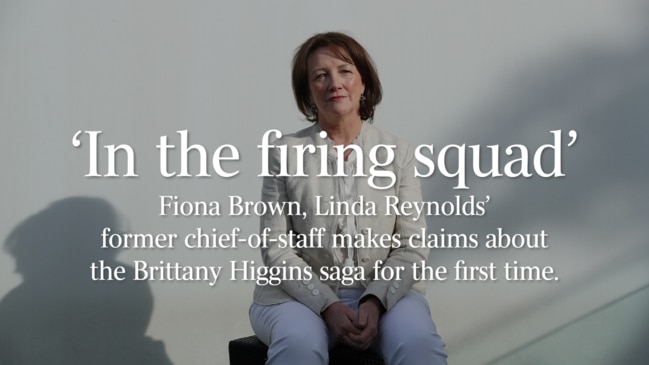
Look at the casualties from the last parliament – Higgins and former defence minister Linda Reynolds suffered immense damage and were hospitalised while the senior official involved, Fiona Brown, admits she came close to suicide.
For Labor, the story this week is that reopening the Higgins issue is not to be tolerated. It is too sensitive and treacherous. Labor insists it took a stand on morality and justice for women. Yet many of the claims or lines of inquiry pursued by Labor – not about the rape allegation but about the Morrison government’s treatment of Higgins – have been found to be dubious or contested or false.
Higgins has obtained a large compensation payment under the Labor government, the exact figure being unknown, the claim being for economic loss due to the rape allegation but also including compensation for the “distress and humiliation” attributed to Morrison government senior figures.
Neither Reynolds nor senator Michaelia Cash, the ministers who employed Higgins, were allowed to give evidence at the mediation to dispute the claims.
The problem for Labor is the mounting evidence suggesting the depth of political motive in the Higgins case.
The politics was always there. In February 2021 when Higgins decided to speak out she said it was the sight of Morrison standing with the Australian of the Year at the time, Grace Tame, a survivor of sexual assault, that made up her mind.
“I was sick to my stomach,” she said. “He’s standing next to a woman who has campaigned for Let Her Speak and yet in my mind his government was complicit in silencing me. It was a betrayal. It was a lie.”
This suggests hostility towards Morrison and accusations against Morrison were a factor, perhaps the factor, in Higgins going public.
The text messages published in this paper by Janet Albrechtsen and Stephen Rice show the politics being pursued by Sharaz in the days before Higgins went public with Samantha Maiden at news.com.au on February 15, 2021, and with The Project on Channel 10.
Higgins said it “defied belief” that Morrison did not know of her allegations until they were becoming public in the media. Many people, notably political reporters and Labor, assumed Morrison was lying and engaging in a cover-up. But the evidence is that he didn’t know (see Niki Savva, Bulldozed).
On February 11, four days before The Project story, referring to his relationship with senator Katy Gallagher, now Finance Minister, Sharaz messaged Higgins: “Katy is going to come to me with some questions you need to prepare for … She’s really invested now ha ha.”
Later, Sharaz messaged: “Katy Gallagher messaged me. She’s angry and wants to help. She’s got the context.” Sharaz said: “I gave her (The Project) interview for context. I hope that’s okay?” Higgins replied: “That’s fine. It’ll all be public pretty soon anyway.”
Five weeks later, on March 18, Higgins messaged: “You may as well feed everything you have to Katy.” On March 26, she messaged about Morrison: “He’s about to be f…ed over. Just wait. We’ve got him.” Sharaz said: “I still hate the c…”.
Once Higgins went public, Labor’s campaign was immediate. Gallagher asked Reynolds whether the woman involved knew her job “would be secure”. Within three minutes of the start of question time she was quizzing Reynolds on whether Higgins had been pressured “not to pursue the incident with police”.
Opposition Senate leader Penny Wong pressed Reynolds on the same issue, with Reynolds saying “it was actually me who facilitated the first meeting with the Australian Federal Police”.
Greens Senate leader Larissa Waters said Higgins had left her meeting with Reynolds feeling if she went to the police “her own career would be at stake”.
Did Reynolds ever suggest Higgins’s job was at risk if she went to the police? “No. Never,” Reynolds told The Australian. But the narrative was set. It grew almost daily, fuelled by a massive media campaign that naturally respected Higgins – but also took nearly everything Higgins said about the government at face value.
Reynolds, Morrison and the government were shocked at what Higgins had said but obviously were unable to criticise her. It is virtually impossible to criticise a woman turning a rape allegation into an accusation about an intimidating government. Much of the damage done arose because the government couldn’t relate emotionally. The more Morrison said, the worse it got.
Two years had elapsed between the events of March 23, 2019, when Higgins said she was raped by Bruce Lehrmann, and her going public in February 2021, appearing in the media before she went to the police with a formal complaint.
In her interview with The Australian published on February 17 this year, Reynolds described her reaction watching The Project interview: “I actually couldn’t believe what I was hearing and seeing. It was just such a shock. Being accusing of covering up the rape of a young women for political purposes. It was like a stake through my heart.”
On February 18, 2021, Reynolds in a statement to the Senate provided her account of what happened and said at a meeting on April 1, 2019, she told Higgins “she would have my full support” in whatever action she took.
Reynolds said she and Brown moved “to ensure that Brittany was given access to the police” if she wanted to make a complaint.
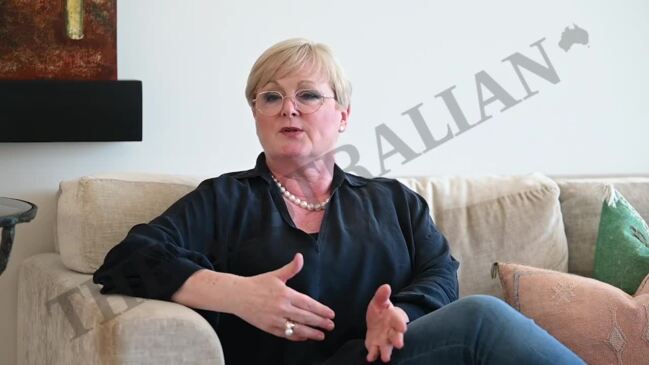
She said she and Brown had followed the advice on how to proceed from Ministerial and Parliamentary Services and the Department of Finance. She said she was “deeply sorry” that “Brittany felt unsupported” at the time of the incident and was also “deeply sorry” that Higgins felt some of “my actions and my handling” had contributed to her distress.
Reynolds said she had not told the prime minister about Higgins’s allegation because “it was not my story to tell” – a stance that angered Morrison when he found out. Reynolds put Higgins’s privacy before her political responsibility to Morrison.
In Brown’s exclusive interview with Albrechtsen and Rice, published on June 10-11, Brown said in their initial discussion she raised with Higgins the gravity of the security breach – entering the minister’s office after hours. Higgins said nothing about a rape; Brown suspected they might have had sex. At the second meeting Higgins, when she was leaving, said, “Oh, I remember him on top of me.”
A shocked Brown asked if Higgins was OK, tried to comfort her, asked what she wanted to do. Brown subsequently phoned the Australian Federal Police office in the building and set up a meeting for them with Higgins. She asked if Higgins wanted her to attend the police meeting as well. She didn’t.
After the re-election of the Morrison government Higgins sent Brown a message: “I cannot overstate how much I’ve valued your support and advice throughout this period.”
Brown described her reaction nearly two years later when watching Lisa Wilkinson’s interview with Higgins on The Project: “I’m just going ‘what the f..k is going on here? This is not what happened. Why is she doing this? It was like standing in front of a firing squad. And it was the day that my life ended, as I knew it.”
Higgins accused Brown of walking past the rape of a young woman. “How could you think it was OK to do that to another human being,” Brown said to the paper. Brown was left with no defenders. She said the #Me Too movement was too strong. Brown felt she had become a pariah in the prime minister’s office.
In her statement on Tuesday Gallagher presented one side of the issue: her concern to protect “the bravery and courage” of a young woman “who chose to speak up”. Gallagher denied misleading parliament but the facts told something different – while she had told Senate estimates “no one had any knowledge” of Higgins’s pending revelations, she admitted in her statement that “I was provided with information in the days before the allegations were first reported.”
It is obvious Gallagher misled the parliament. But the Coalition was never going to claim Gallagher’s political head. Misleading parliament has long since ceased to be the trigger for ministerial removal. Moreover, it would have been politically absurd for Anthony Albanese to remove such an important minister for that offence.
Gallagher turned the heat back on the Liberals, saying Higgins felt “significantly let down” by the Morrison government. “She should have been dealt with as a human being, not a problem that needed managing,” she said. The message is that Labor acted from only the purest of high principles.
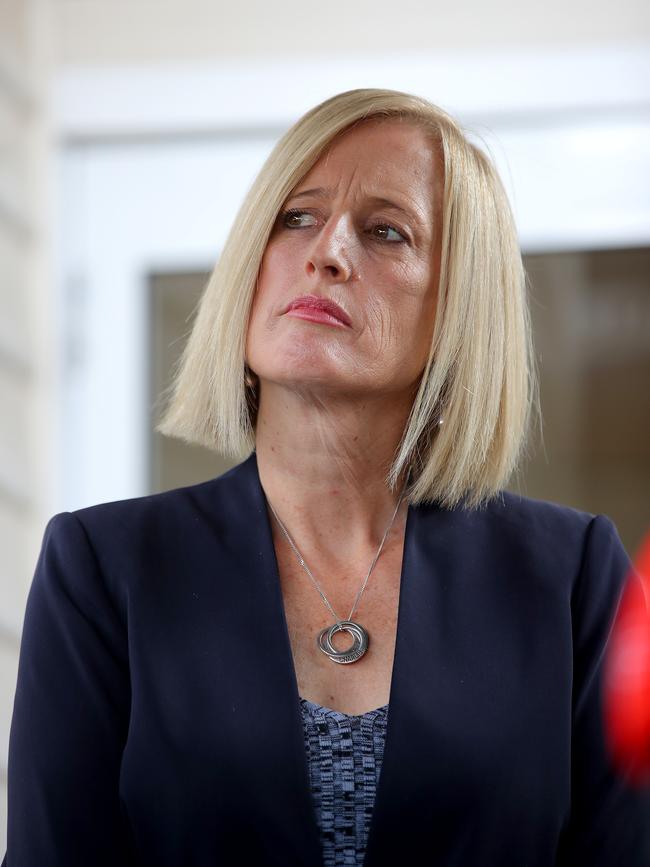
But the narrative tells a different story: a sustained attack over months, not just defending Higgins but turning her claims into a demolition of the Morrison government. The political issue was not the rape as such but the government’s response. Many of the foundations of Labor’s attack increasingly have been exposed as dubious, contested or false. And that is Labor’s morality problem.
It staged a show trial against Morrison and Reynolds on moral grounds and those moral grounds increasingly don’t stand up. Reynolds said: “What this showed me is that even the strongest people have a breaking point and Labor found mine. It was calculated, it was deliberate.”
Gallagher told parliament she was “sorry” for the distress caused to Reynolds and on Friday she also made clear she believed Higgins on the rape allegation, an honest insight into the way Labor responded to Higgins in 2021.
Gallagher also returned fire in the media, saying publication of Higgins’s phone messages provided for court use would only “seriously damage” the confidence of women in reporting harassment or assault. The Prime Minister made the same claim.
The Australian published these messages because there was a public interest in documenting the political collaboration at work. This is not about a conspiracy. It is not saying Labor should not have pursued the issue.
But Labor’s claim that it was solely protecting Higgins and the plight of women subject to sexual abuse is misleading and hypocritical. It conducted a brilliant political exercise that exposed a core Morrison weakness: his political dissembling, evasiveness and lack of empathy in dealing with women.
As for the claim The Australian’s stories will discourage women from reporting sexual abuse – no, the story, if it has any impact, might discourage people pursuing rape allegations by media, publicity and politics. That’s what happened here – and to pretend otherwise is to deny the central chain of events. The story is a morality tale on the consequences of such politically driven, publicity-seeking behaviour.
The pent-up emotions from the last parliament are still raw. Albanese is dismissive, almost contemptuous, of any questioning of Labor’s role in the Higgins affairs. But perceptions about what happened are changing – the story, operating at many levels, still has a long way to run.


